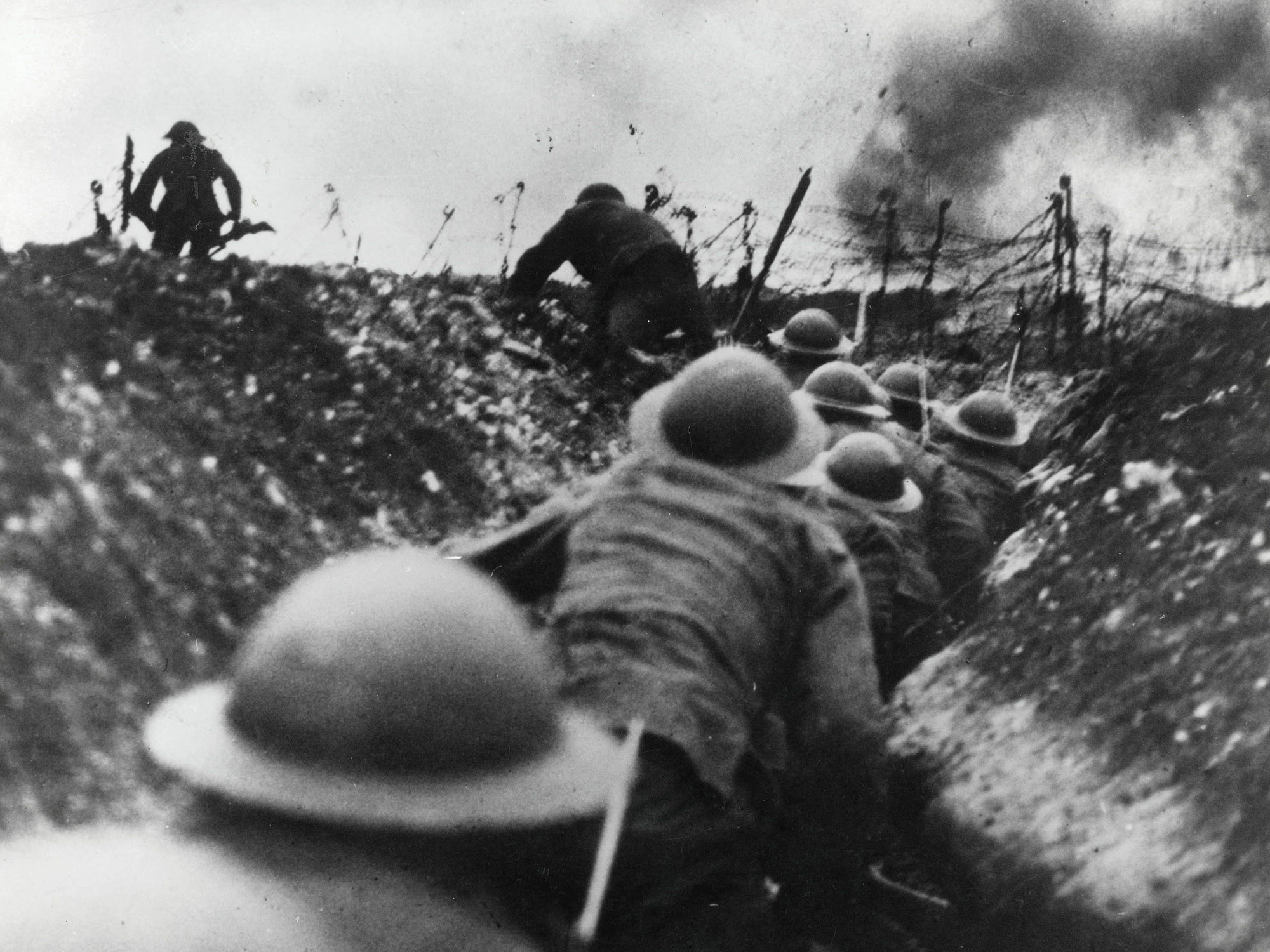Mutiny Spreading; Germany Loses African Colony.
On Western Front, Allies Eager for New Offensive
Special to The Great War Project
(14-17 July) The war is changing everything.
Already instances of mutiny and rebellion hit the retreating Russian army in Eastern Europe. These mutinous episodes are encouraged by Bolshevik propaganda circulating widely among Russian troops.
There is unrest as well on the Western Front. On July 15 a year ago, the British Foreign Secretary, Sir Edward Grey, in a meeting with the Canadian prime minister, expresses his concern about the changes that the war is sparking.
“He spoke with great gravity,” the Canadian writes in his diary, “as to the burdens imposed by the war.”
The war “must result in the overthrow of all existing forms of government.”
As an example of how far and wide the changes are occurring, take events in the German colony of Southwest Africa. In early July, the German forces there surrender to South African forces, allied with Great Britain. Just a few days later South Africa annexes the territory (now independent and known as Namibia.)
On July 17th a century ago, Bulgaria, so far not a party to the war, signs a secret treaty with Germany and Austria-Hungary. According to historian Martin Gilbert, for support in the war effort, Bulgaria extracts from its new allies “a promise of six hundred square miles or Turkish territory in Thrace,” (now part of Greece).
But according to Gilbert, Bulgaria’s thirst for expanding its territory is not satisfied by this pledge. According to Gilbert, Bulgaria demands “the Serbian and Greek provinces of Macedonia,” and portions of the Romanian coast.
At the same time on the Western Front, military and political leaders from Britain and France meet to plot strategy. Despite the failures of recent offensives in northern France…
The allies are planning renewed attacks to break out of the deadlock in the trenches.
The French commander-in-chief presents a plan for a new offensive.
On July 7th the British commander Sir John French concludes according to the minutes of his meeting with his French counterpart, “that the general strategic situation demanded the offensive and pledged himself to the utmost of his means.”
But there is skepticism among the British leaders. Lord Kitchener, the British Secretary of War, writes to another top British general that the French and British field commanders have made assurances like this before of how effective their offensives would be.
“What have they done?” Kitchener writes…
“The attacks are costly and end in nothing.”


